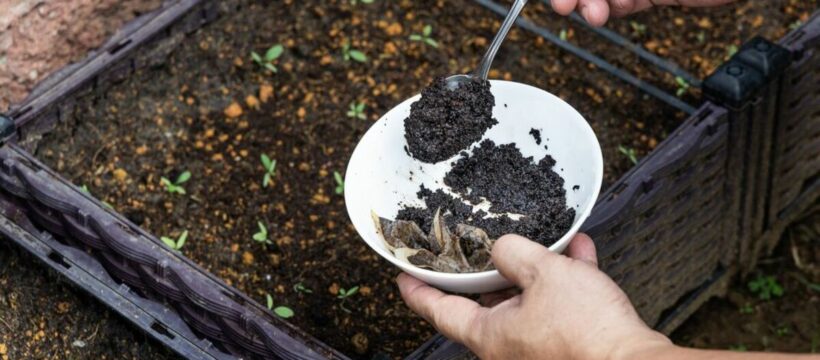Houseplants: Expert shares tips for natural pesticides
There’s nothing better than having homegrown fruit and vegetables in the fridge. It’s more affordable, sustainable and tastes better than shop-bought items.
Plants, whether it’s crops or even houseplants, tend to look their best when they’re fed correctly.
Feeding is usually done in the spring and summer months when the plants are in the middle of their growing season.
Rarely do plants need to be fertilised during the winter months, even if they bloom in the winter.
Rather than forking out for shop-bought fertilisers which can be expensive, an expert has shared how to use food scraps to fertilise plants.

Laura Harnett from Seep eco-cleaning products shared how to use banana skins, nut shells, egg shells and coffee grounds to give plants a boost.
She said: “If you don’t have a compost heap or composter, don’t worry as some household waste has a benefit added straight to the soil.
“Banana skins act as an insecticide and also a natural fertiliser for many types of plants.
Don’t miss…
Alan Titchmarsh on what to do with ‘tatty’ daffodils after flowering[INSIGHT]
Five ‘must-have’ garden flowers to add ‘instant impact’ in ‘any’ garden[UPDATE]
Four ‘effective home remedies’ to kill bed bugs and ‘eliminate an infestation’[LATEST]

“Nut shells and egg shells help to aerate soil, which is essential for those who have heavy, clay soil.
“Coffee grounds are rich in nitrogen so make a great addition to the soil, especially for a vegetable patch.”
Coffee grounds are particularly loved by houseplants, onions, lettuce and corn.
The unusual hack can also be used to deter pests like slugs and snails from munching on plants.
We use your sign-up to provide content in ways you’ve consented to and to improve our understanding of you. This may include adverts from us and 3rd parties based on our understanding. You can unsubscribe at any time. More info
However, if using coffee grounds is too much inside the house, gardeners can instead mix the grounds in their watering can and then water the plants.
Cinnamon can also be used to reduce fungal growth in plants, particularly houseplants.
The popular festive spice is naturally antimicrobial and antibacterial so it helps to protect plants from disease.
Source: Read Full Article
